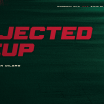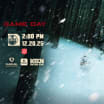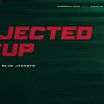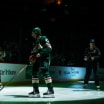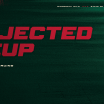SEATTLE -- While the rain and chill of the Pacific Northwest may have kept a few Wild players stowed away for a quiet day in their hotel rooms on Friday, you can bet forward Rem Pitlick wasn't one of them.
And it's not just because the 24-year-old from Plymouth is new to the National Hockey League and is eager to explore some of North America's best cities - although that's part of it.
It's largely because Pitlick is fascinated by the landscapes and the environment the city of Seattle provides.
Seattle return gives Pitlick a chance to reconnect with environment
Cabin time up north with friends and family helped cultivate a passion for the outdoors and nature that has Wild forward exploring his surroundings
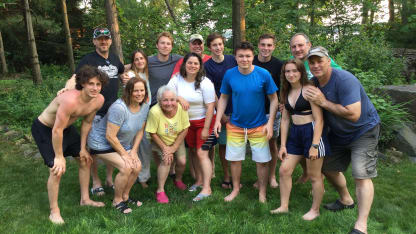
By
Dan Myers
Wild.com
Born in Ottawa when his dad, Lance, played for the Ottawa Senators, Pitlick grew up in the Twin Cities metro and played high school hockey at Shattuck St. Mary's. After his two-year junior career, he spent three seasons at the University of Minnesota, where he was an All-American in his final campaign there.
Drafted by the Nashville Predators, Pitlick played two years in the American Hockey League and had a cup of coffee with the Preds before he was placed on waivers prior to the start of this season, with the intent of getting him back to the AHL.
But his homestate Wild put in a claim, and Pitlick couldn't have been more excited to return home to a place that is near and dear to his heart for more than just the home cooking.
Pitlick has a passion for the environment, how it is intrinsically connected to humans and how we as a species effect the environments around us.
If that sounds a little deep ... that's because it is. And it was something that Pitlick really didn't get into himself much until the COVID-19 pandemic seemingly shut down the world in 2020.
That's when he really started to take note of how there is a symbiotic relationship between we as people and the place we call home.
"Everything comes back to the health of the environment and the health of our bodies," Pitlick said. "I feel like I've always been led down that path, appreciating health. But obviously we understand this now a lot more personally just because of COVID and how it shuts the whole world down because of a health issue.
"And if you look at it, it really can stem its way back to nature and how we take care of the environment ... which leads into how we take care of ourselves as well."
Pitlick was especially interested in investigating more around Climate Pledge Arena, home of the Seattle Kraken, when the Wild was here a couple of weeks ago. Upon walking into the building for practice, Pitlick saw a sign promoting the arena as the "most sustainable arena in the world."
It is the first net-zero carbon-certified facility in the world. The arena is entirely electric, and is powered by 100 percent renewable electricity, from on-site solar panels and off-side renewables.
All operations and events use compostable containers.
Even the ice the Kraken skate on is made from reclaimed rainwater.
The environmental themes inside the arena's concourses and in the hallways are some of the most unique in the NHL.
"I really wanted to understand what they do differently," Pitlick said.
Unfortunately for Pitlick, he didn't get a chance to look around much last month, because the Wild canceled practice that day when he and Mats Zuccarello tested positive for COVID-19 and were forced to be sent home.
His trip back to Minnesota only made him more curious.
As he and Zuccarello rode home in their chartered flight, Pitlick looked out the window a few minutes after takeoff and was fascinated by the mountain-side lakes and landscapes he saw from 20,000 feet in the air.
He was determined to get out and explore the region and learn more about the arena and its environmental impacts on this trip.
Pitlick admits his mom Lisa, a former gymnast at the U of M, has always been a bit of a "tree-hugger," so in that regard, being mindful of the environment has been a part of his upbringing.
Countless weekends up north at the cabin and on the lake provided life-long memories and only intensified his passion.
Like so many other Minnesotans who spend time in the outdoors, Pitlick believes it is important to be a good steward of the outdoors because we should feel compelled to "leave this place better than we found it."
But Pitlick's interest in those relationships really didn't take off until more recently, a passion that was initially ignited by his best friend and current captain of the Harvard men's hockey team, Edina native Casey Dornbach.
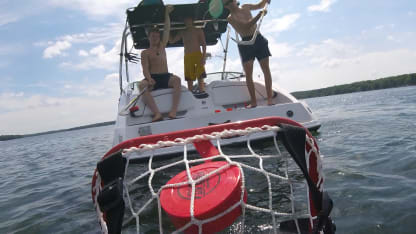
"He's a smartie, and before I went to the U, he would listen to these podcasts and we'd be talking about some of the stuff we'd be listening to," Pitlick said. "And I'd listen, and some of it was just stuff I wasn't really ready to hear. And [Dornbach] would be talking about it when we were up at the cabin in the summers and I'd just be like, 'man shut up, it's too much for me right now.'"
Taking unique approaches to mend the body was nothing new to Pitlick, who spent plenty of time with renowned hockey player agent Neil Sheehy, who in addition to being a lawyer and an advocate for his clients, is also certified in soft tissue practice from the NeuroMuscular Therapy Center in St. Petersburg, Fla. He also has a certificate in Clinical Massage Therapy from Northwestern Health Sciences University in Bloomington.
Sheehy, who is also Pitlick's agent, has been helping players with Neuromuscular Therapy for years, but it can be a little difficult to explain the exact hows and whys in Layman's terms. It's not a traditional "medical" route and Sheehy is not a doctor, which makes it a little unusual for professional athletes, who are very-much cognizant of how they treat their bodies.
The bottom line? Neuromuscular Therapy serves as an avenue for helping unhealthy tissue heal, and do so naturally.
It worked for Pitlick.
"In high school, I had really bad injury problems," Pitlick said. "I had bad hip flexors and I could barely skate. I saw chiropractors, went to physical therapy ... and my buddy Casey, around the same time, was listening to those podcasts and was thinking outside the box. He kept pushing me to go see Neil Sheehy.
"I know people see Neil and think he does some outside-the-box treatments. People think it's a little different. But honestly, he saved my hockey career. If it wasn't for him, I wouldn't be skating right now because the pain in my hips was so bad.
"That was my first taste of it, Casey listening to the podcast stuff, Neil offering something different from what I had seen clinically and at that point, my mind became a little more opened."
Over the past year, Pitlick said he's taken that open-mindedness and applied it to other areas of his life, including how he views the environment and the world around him.
He's also wondered what is next. In addition to establishing himself as an every-night NHLer, Pitlick said he wants to travel he world and spend time reflecting on how he can best make a positive impact away from the ice as well.
"At some point in time, COVID is going to come to an end in some way, shape or form, and the world is going to come back," Pitlick said. "What am I going to do with my time, and what is this showing us, whether it is individually or collectively?
"I do take moments of stillness to contemplate, 'what the hell is going on right now?' and 'why is this happening?' I don't think I'll find an answer, but what's an answer that maybe gives me purpose in how I want to go forward and what I want to look for, what I want to stand for?
"I think [COVID] just cemented in my head how important health is, how important connection is and that's not only to each other, but to nature as well."
Being home in Minnesota has allowed that relationship to flourish and take hold. And while the harsh winter isn't far away, Pitlick says he'll look forward to finding the natural beauty that it also provides.
Almost like a new beginning, similar to the one he's experiencing on the ice as well.
"There are just a plethora of opportunities to be in it," Pitlick said. "You can't help but be drawn into that."
Related:
Photos provided by Rem Pitlick


